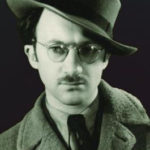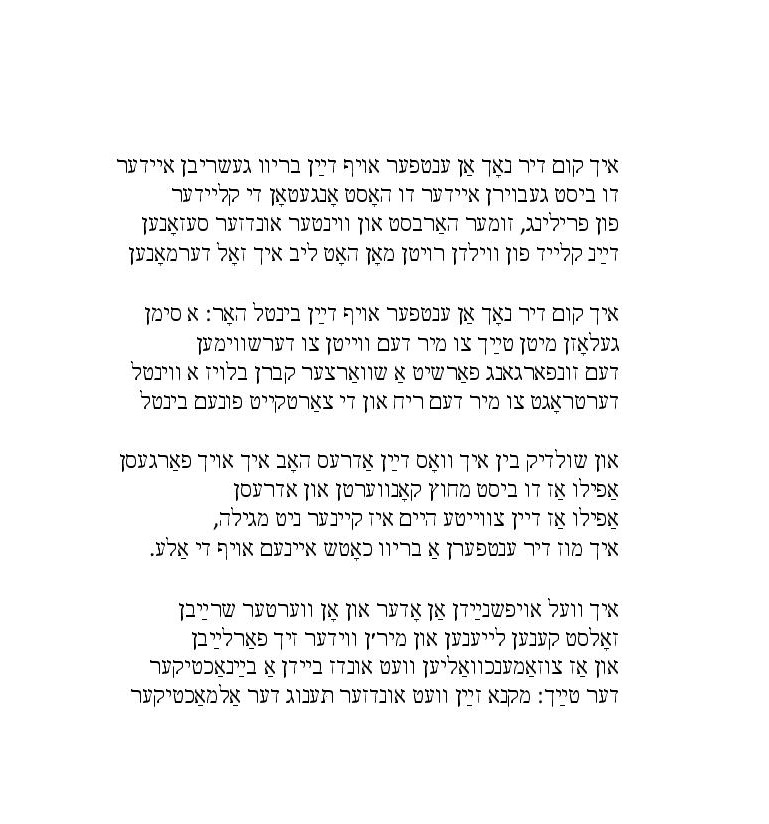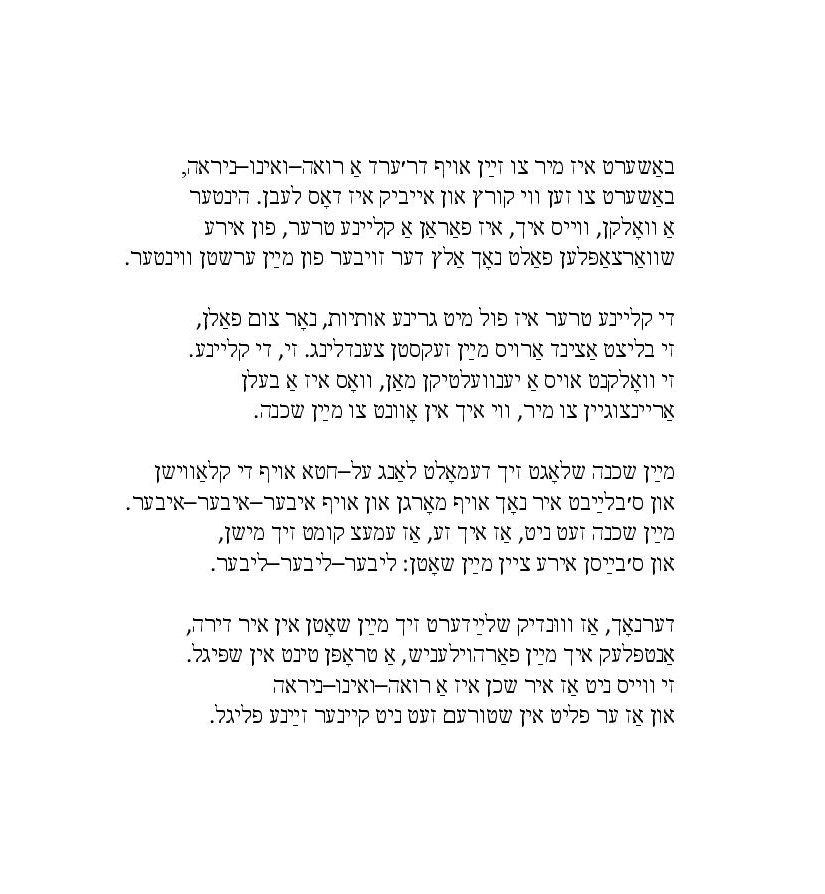Poems by Abraham Sutzkever
Translated from the Yiddish by Maia Evrona
I Owe You an Answer to Your Letter
I owe you an answer to your letter, written
before you were born, before you had dressed for summer,
spring, autumn and winter, our seasons. Your gown
of wild red poppies loves for me to remember.
I owe you an answer to your sweet bundle of hair:
a sign lost with the river, the distance for me to cover.
The sunset has been overwhelmed by a dark gravedigger.
Only a breeze carries your hair’s scent and that sweetness to me.
And I am guilty, for I have also forgotten your address,
even as you are beyond envelopes and addresses.
Even as no one has revealed your other home,
I must answer a letter from you, though with one for them all.
I will slit open a vein and write without words,
so you are able to read. And we will again embody ourselves.
And when the river’s current brings us together in the night:
even the Almighty will envy our delight.
My Destiny On This Earth Is To Be An Invisible Man
My destiny on this earth is to be an invisible man,
destined to see how short and how eternal is this life.
Behind a cloud, I know, there is a small tear, the cleanliness
of my first winter still continues to fall from its eyes.
The small tear is full of green letters, but as it falls,
it illuminates my life’s sixth decade like lightning. This tear, this tiny one.
It covers a man from another world in fog, a man eager
to visit me, as I in the evening to the woman next door.
That is when my neighbor sits for a long time at the piano keys to repent,
yet her guilt still stays with her tomorrow and the next day and the next.
My neighbor does not see that I see, that someone has come to interfere,
and my shadow makes her itch: lover-lover-lover.
Afterwards, if my shadow trembles, wounded, in her apartment,
I reveal my hiddenness with a drop of ink on the mirror.
She doesn’t know that her neighbor is an invisible man
and when he soars through a storm no one sees his wings.
 Abraham Sutzkever, born in 1913 in modern-day Belarus, is a legendary figure of the Yiddish literary world, with a poetic oeuvre numbering well over 1,000 pages. A survivor of the Vilna Ghetto and a former partisan, he immigrated to Mandatory Palestine just before the founding of the State of Israel and passed away in Tel Aviv in 2010, at the age of 96.
Abraham Sutzkever, born in 1913 in modern-day Belarus, is a legendary figure of the Yiddish literary world, with a poetic oeuvre numbering well over 1,000 pages. A survivor of the Vilna Ghetto and a former partisan, he immigrated to Mandatory Palestine just before the founding of the State of Israel and passed away in Tel Aviv in 2010, at the age of 96.
 Maia Evrona’s poems, as well as excerpts from her memoir on growing up with a chronic illness, have appeared in Prairie Schooner, Valparaiso Poetry Review, and elsewhere. Her translations of Abraham Sutzkever were awarded a 2016 Translation Fellowship from the NEA and have appeared in Poetry Magazine, The Kenyon Review Online and other venues. She also loves to sing. Her website is http://www.maiaevrona.com/.
Maia Evrona’s poems, as well as excerpts from her memoir on growing up with a chronic illness, have appeared in Prairie Schooner, Valparaiso Poetry Review, and elsewhere. Her translations of Abraham Sutzkever were awarded a 2016 Translation Fellowship from the NEA and have appeared in Poetry Magazine, The Kenyon Review Online and other venues. She also loves to sing. Her website is http://www.maiaevrona.com/.


